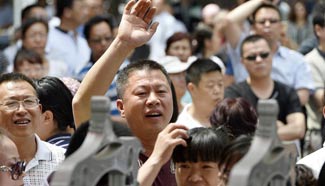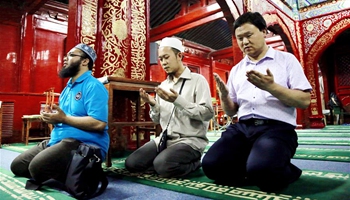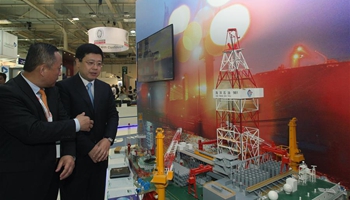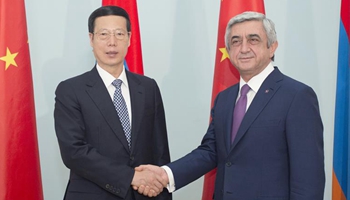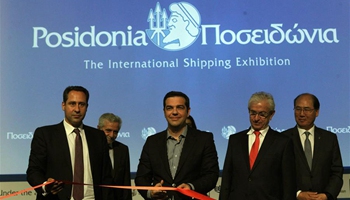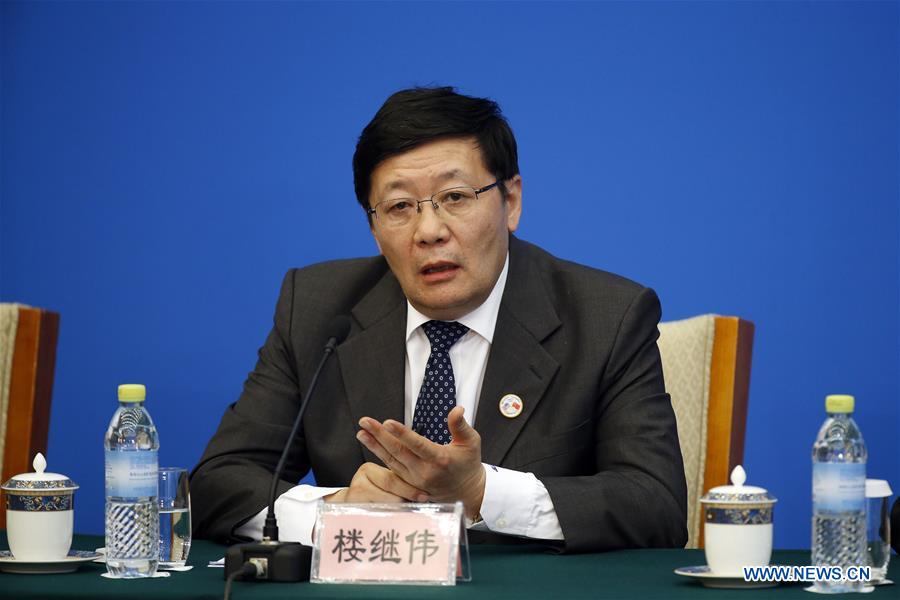
BEIJING, June 6, 2016 (Xinhua) -- Chinese Finance Minister Lou Jiwei speaks at a press briefing on the sidelines of the eighth round of China-U.S. Strategic and Economic Dialogues (S&ED) and the seventh round of China-U.S. High-Level Consultation on People-to-People Exchange (CPE) in Beijing, China, June 6, 2016. (Xinhua/Shen Bohan)
BEIJING, June 6 (Xinhua) -- China will continue to cut excess production capacity, but will rely on market forces, not government-set targets, to do so, Finance Minister Lou Jiwei said on Monday, as an annual high-level dialogue between China and United States kicked off.
Speaking at a press briefing, Lou said China has attached great importance to cutting industrial overcapacity, and that measures have been taken to eliminate 90 million tonnes of steel production capacity.
But he ruled out the possibility of working out a quantitative target initiated by the government.
"China has bid farewell to the planned economy, so the government can not dictate to industries on this. More than half of the country's steel makers are privately owned," Lou said.
While stressing market forces, the minister said the government will strengthen supervision on environmental protection and energy saving, and ensure high quality and security.
The government will also provide fiscal support to aid laid-off workers, he added.
The eighth China-U.S. Strategic and Economic Dialogue comes at a time when excess steel capacity has become an acute global challenge.
U.S. steel producers are increasingly resorting to trade remedies and tariff protection to ride out a sluggish steel market, a practice strongly opposed by Chinese exporters.
STRUCTURAL REFORM CRUCIAL
As the global economy grapples with a weak recovery, macro-policy coordination is high on the dialogue's agenda.
Although the U.S. economy is seeing stronger recovery momentum, its investment engine remains weak and trade and fiscal deficits are high. Meanwhile, the Chinese economy is operating stably, but its fundamental problems have not been sorted out, Lou said, reaffirming the need for both countries to implement structural reforms.
He said China is willing to work alongside the international community to strengthen policy coordination and boost growth potential through structural reform and technology innovation.
"China will adhere to a proactive fiscal policy and prudent monetary policy to provide a stable environment for structural reform," he added.
While the Chinese side pledged persistent policy making, the U.S. government vowed greater transparency and to make policy-setting more forward-looking to lessen the negative spillover to other countries.
The United States also agreed to take actions to boost productivity and investment, raise saving rates as well as labor participation rates, and achieve sustainable fiscal discipline in the medium-term.




